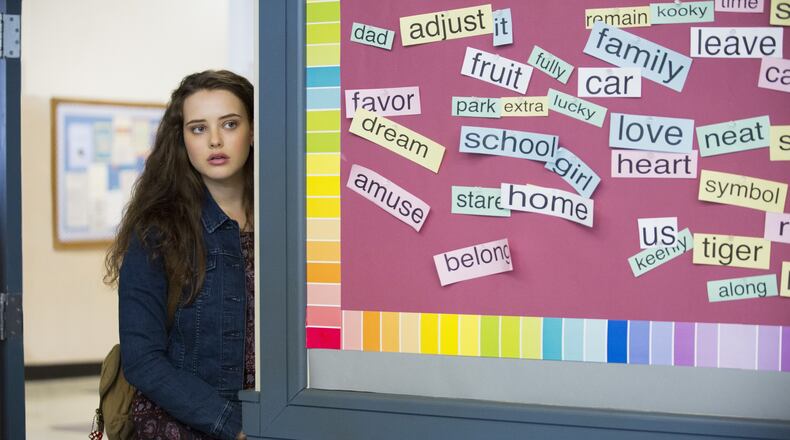While the series has received positive reviews from many critics, school leaders are concerned about the impact “13 Reasons Why” could have on students.
“ ‘13 Reasons Why’ is a fictional story based on the widely known novel and is meant to be a cautionary tale. It is the story of a high school girl who leaves behind tapes after her suicide — tracing the events that led up to her decision to end her life,” said Lebanon City Schools Superintendent Todd Yohey. “Although the show is rated TV-MA, many students have watched it already. There is concern among mental health professionals that the series could be triggering for those who are already struggling, as well as for those who are supporting their friends.”
According to a statement from Springboro Community City School District guidance counselors, students there as young as fourth grade have watched the series.
“Our counseling staff is noticing the impact this is having on students, as children process information very differently than adults. The topics covered in this series have been experienced by some of our students or by someone close to them, and they need direction on how to manage these very serious concepts in a healthy manner. They are emotionally unable to process most of this content by themselves,” the statement said. “We are concerned about the program, because ‘13 Reasons Why’ does not address mental illness or show viable alternatives to suicide.”
Mason City Schools Public Information Officer Tracey Carson said it is one of the most viewed programs on Netflix, and some students have already watched all 13 episodes, which has been renewed for a second season.
“According to some behavioral health experts, this series could do more harm than good, especially for youth who may be isolated, struggling or vulnerable to suggestive images and story lines,” she said.
Greg Power, Little Miami Local School District superintendent, said the series graphically depicts the character’s suicide and mature topics such as bullying, sexual assault, drug use and social issues.
As a result, Little Miami, as well as other Warren County school districts, have sent messages to families explaining their concerns and sharing resources on suicide awareness.
“We hope this information provides an opportunity to remind our children about the importance of seeking support from (their parents) and from other caring adults in their lives when they are feeling overwhelmed,” he said.
Contact this contributing writer at lisa.knodel@gmail.com.
Suicide risk warning signs
Warren County school districts are sharing these tips regarding suicide risk and prevention:
• Always take warning signs seriously, and never promise to keep them secret. Common signs include:
• Suicide threats, both direct (“I am going to kill myself,” “I need life to stop”) and indirect (“I need it to stop,” “I wish I could fall asleep and never wake up”). Threats can be verbal or written, and they are often found in online postings.
• Giving away prized possessions.
• Preoccupation with death in conversation, writing, drawing and social media.
• Changes in behavior, appearance/hygiene, thoughts or feelings. This can include someone who is typically sad who suddenly becomes extremely happy.
• Emotional distress.
Actions
When a student gives signs that he or she may be considering suicide, take the following actions:
• Remain calm, be nonjudgmental and listen. Strive to understand the intolerable emotional pain that has resulted in suicidal thoughts.
• Avoid statements that might be perceived as minimizing the student’s emotional pain (e.g., “You need to move on” or “You should get over it.”).
• Ask the student directly if they are thinking about suicide (i.e., “Are you thinking of suicide?”).
• Focus on your concern for their well-being and avoid being accusatory.
• Reassure the student that there is help and they will not feel like this forever.
• Provide constant supervision. Do not leave the student alone.
• Without putting yourself in danger, remove means for self-harm, including any weapons the person might find.
• Get help. Parents should seek help from school or community mental health resources. Students should tell an appropriate caregiving adult, such as a parent, school psychologist, guidance counselor, administrator or teacher.
SOURCE: The National Association of School Psychologists
About the Author
